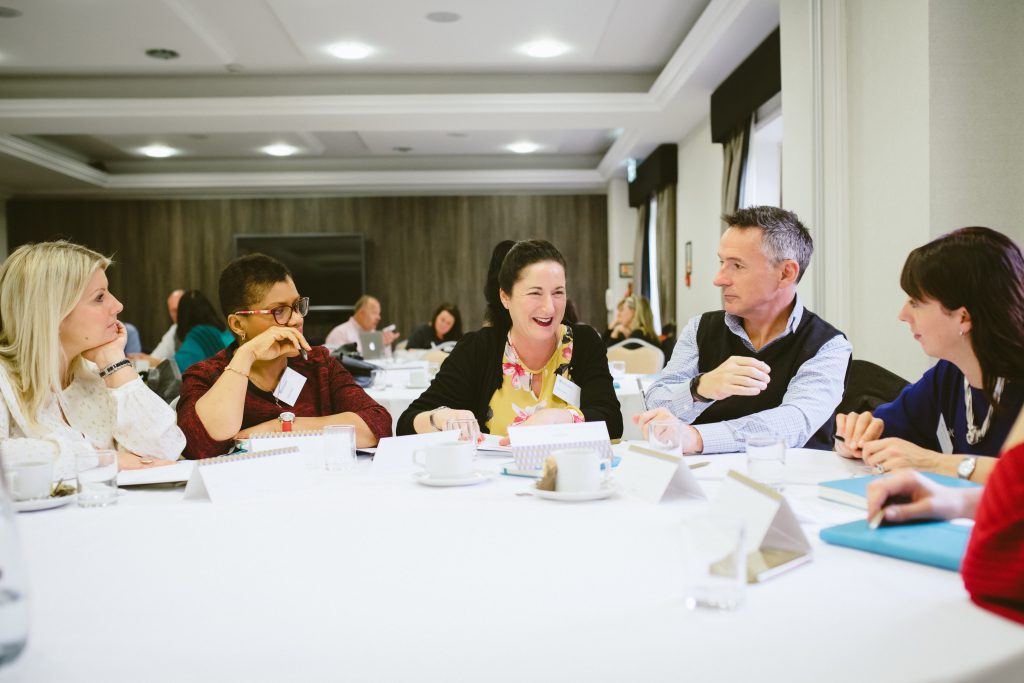Modelling fast-paced success: stoke the engine of your business with Strategic HR
Do you have a strong leadership team and staff who are happy, engaged and working to the best of their ability? Are your people in the right jobs that suit their strengths, and is everyone in the business committed to seeing it succeed? Do you have a leadership team focused on the goals of the business and is the business model robust enough to continue growing if a key member of the team were to suddenly leave?
These are just some of the questions that People Puzzles have been helping sub-500 employee sized businesses address since its inception in 2010. ‘We don’t call it HR consulting, we call it embedding one of our team inside our clients’ businesses’ says People Puzzles founder, Ally Maughan. ‘What we do is try to help our clients become the best they can be, from growth, to culture, to profit.’
With a CIPD masters from the LSE School of Leadership, Ally began putting HR theory into practice as a consultant specialising in SMEs. It was here she saw that small businesses need more help than simply running an HR process. ‘Consultancy alone is not going to solve fundamental problems,’ she says. ‘I saw a gap in the market for getting people experts into businesses that don’t want – and actually don’t need – a full time HR person or a fancy training programme – they need to be cleverer than that.’
People Puzzles brings with it big business expertise and translates that to smaller teams and budgets. It is often drafted in to help fast-growing start-ups, owner-managed or family businesses who need to create high functioning teams in order to deliver a profitable business.
This often means employing a more holistic approach than is often considered to be ‘HR’. People Puzzles typically kick-start proceedings with a diagnostic exercise – known as a ‘fact find’. ‘We identify any fundamental issues, challenges, bottlenecks or frustrations, which if sorted out, could really push the business forward and stoke the engine,’ explains Ally. ‘Then we draw up a tailored 12-month action plan with a view to getting to where they want to be in three years’ time.’
Change can often be painful; it can mean losing a long-standing member of staff who no longer fits the needs of the organisation. People in the senior team might have to change the way they work because they’re managing staff and budgets that are ten times larger than when they started. ‘You can end up with more questions than answers at the beginning of the process,’ Ally acknowledges. ‘Many business owners need support making that transition to a new normal, but it is likely to be substantially better than the old one.’
Many of People Puzzles’ clients are ambitious businesses whose team is facing a challenge to keep up with the pace of growth. People Puzzles understands this as a fast growing business itself. Having started in 2010 with just one client, it now operates in seven regions spanning the country and a turnover of £3 million.
This success story means that the company is able to practise what it preaches. So, for example, it models a development programme for all of its HR directors and recommends business coaching to all of its clients (which Ally herself undertook soon after founding People Puzzles).
Key to growth was becoming part of the Liberti Group, a company that shares People Puzzles’ philosophy of offering top-level business expertise through a regionally spread, part-time workforce. The Group’s model provided a tried and tested blueprint for People Puzzles, allowing it to expand regionally – and rapidly. As a result the company grew 90% and doubled in size three years in a row.
However, Ally is aware of the effect that relentless fast growth can bring, especially to those in the top team. ‘It can be really tiring,’ she says. ‘But if you have a robust business model and a team that is delivering, you shouldn’t need to exhaust yourself to grow a business.’
An important element of a robust business model is succession planning, which Ally strongly advises clients to undertake. ‘Your business should be bigger than a collection of individuals,’ she says. ‘We are trying to set up such a good structure that it will work without any one person.’ It’s a model that has clearly worked for People Puzzles; the business continued to grow 43% while Ally was recently on maternity leave (which she recently blogged about).
Along with profitability and customer satisfaction, a key metric in measuring success is the happiness of your team, and this is perhaps People Puzzles’ biggest success so far. Enabling its team of directors to work both part time and locally makes the company an attractive place to work, especially for women returning to the workplace after maternity leave. ‘We have quite a few women who work between school drop off and pick up,’ says Ally. ‘One of our directors has a client at the end of her road – she can get to work one day a week in under ten minutes! If you’re an HR director in an international business you can be travelling all the time. Most people in our team have joined us because they don’t want to do that.’
Allowing its workforce an excellent work-life balance means that Ally has been able to recruit talented people who want to work in a different way. ‘It’s great for us and it’s great for them,’ she says. It also means that when she asks herself the questions mentioned at the beginning – she is as near to answering ‘yes’ to all of them as she would like her clients to be.
Facts and figures
Team: 50
Turnover: 4 million
Regions covered: North, Midlands, East, South, West, London
Specialisms: HR Directors; Strategic HR Services; Leadership; Culture; Skills & Training; Finding Talent; Keeping Talent; HR Processes


